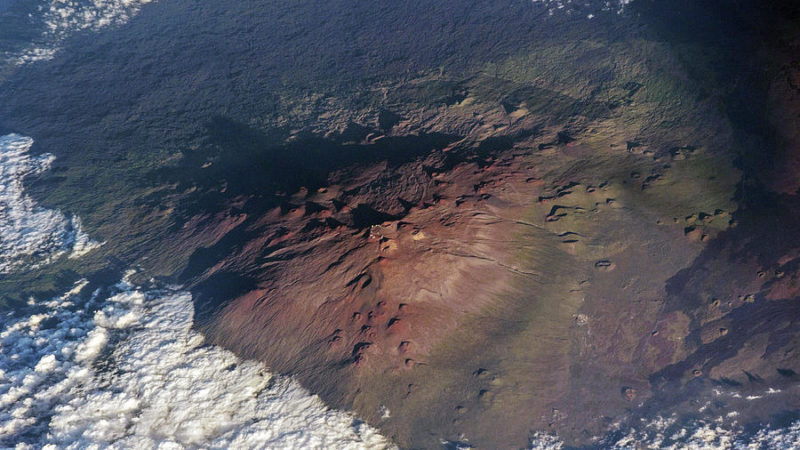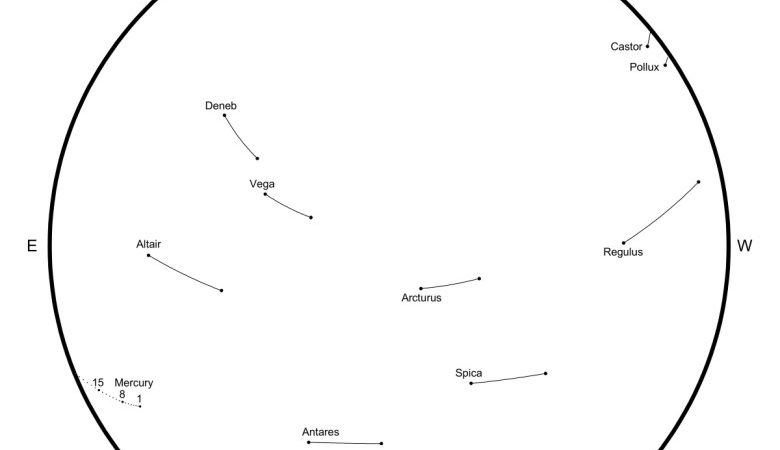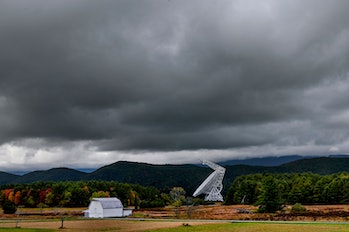Mercury Transit 2019: How to Watch the Rare Event Live Online – Space.com
When Mercury passes in front of the sun on Monday (Nov. 11), skywatchers will need to have the right equipment to see it safely. But if you don’t have the right astronomy gear handy, you can watch the transit live online.
Observatories around the world will be broadcasting live views of the sun on Monday, when Mercury will cross in front of the sun from our perspective here on Earth. Mercury won’t do this again until 2032, so you don’t want to miss it!
Mercury will begin to creep onto the sun’s disk at 7:35 a.m. EST (1235 GMT), and it will take about 5 hour and 28 minutes to make its way across, with the transit ending at 1:04 p.m. EST (1804 GMT). You can watch the entire transit live here on Space.com. We have rounded up a list of several different webcasts you can choose from, and you can find those below.
Related: Mercury Transit 2019: How to Find an Event Near You
Slooh
The online observatory Slooh will host a live webcast of the entire Mercury transit, and the show will feature close-up views of the sun from Slooh’s flagship observatory at the Institute of Astrophysics of the Canary Islands and its partner observatories in Europe, the U.S., South America and Sharjah in the United Arab Emirates.
Slooh astronomer Paul Cox will provide commentary during the transit, and he will be joined by other “astronomical experts who will discuss Mercury, the sun, and planetary transits,” Slooh officials said in a statement. “The team will also discuss the importance of planetary transits in history and why major expeditions to observe them were organized at great expense during the 1700s.”
Slooh’s webcast begins at 7:30 a.m. EST (1230 GMT), about 5 minutes before the start of Mercury’s transit, and it will end at about 5 minutes after the transit ends 1:10 p.m. EST (1810 GMT). You can watch it live at Slooh.com (with a subscription), or watch it for free on YouTube.
In the video above, you can see the views that Slooh recorded during the last Mercury transit on May 9, 2016.
The Virtual Telescope Project
The Virtual Telescope Project, an online observatory based in Italy, will also stream live telescope views of the Mercury transit. Astrophysicist Gianluca Masi, founder of the Virtual Telescope Project, will provide live commentary during the webcast.
That webcast will also begin at 7:30 a.m. EST (1230 GMT), and you can watch it on Masi’s YouTube channel. Masi created a digital simulation of the transit, which you can watch here in the window above.
Time and Date, one of Space.com’s go-to websites for timetables and visualizations for astronomical events, is hosting its own webcast of the Mercury transit. “Weather permitting, we bring you spectacular live telescope footage of the transit of Mercury,” the webcast’s description says.
That webcast will be available on YouTube beginning at 7:30 a.m. EST (1230 GMT), and you can find tons of useful information about the transit — including visibility maps, simulations and timetables — at timeanddate.com.
Griffith Observatory
The Griffith Observatory in Los Angeles, which often hosts public skywatching events, will be streaming live views of the transit at 9:15 a.m. EST (6:15 a.m. local time; 1415 GMT).
Because the observatory is closed on Mondays, it will not be hosting a special event for the transit. You can watch the webcast live here and on YouTube.
Solar Dynamics Observatory
NASA TV has not yet announced a webcast for the Mercury transit, but the agency’s Solar Dynamics Observatory (SDO) will be uploading “almost-live” imagery from its unique vantage point in space.
You can see the latest SDO images of the transit at mercurytransit.gsfc.nasa.gov/2019.
Email Hanneke Weitering at hweitering@space.com or follow her @hannekescience. Follow us on Twitter @Spacedotcom and on Facebook.

Need more space? Subscribe to our sister title “All About Space” Magazine for the latest amazing news from the final frontier!
(Image credit: All About Space)






